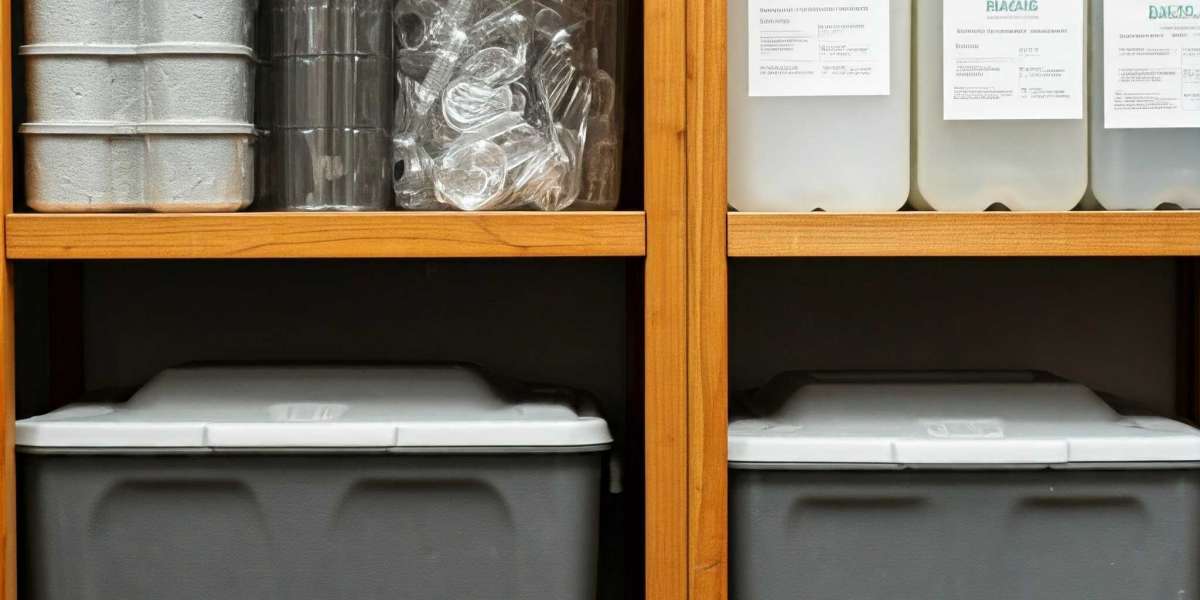What Are Bulk Recycling Kits?
Definition and Purpose
Bulk recycling kits are comprehensive packages designed to simplify and streamline the recycling process for households, businesses, and communities. They typically include containers, labels, and instructional guides to help users collect and sort recyclables effectively.
Common Items Included in Bulk Kits
These kits often contain:
- Durable bins or bags
- Labels for categorizing recyclables (paper, plastic, metal, etc.)
- Instructional guides on what can and cannot be recycled
Why Are Bulk Recycling Kits Essential?
Addressing the Recycling Crisis
Minnesota generates tons of waste annually, much of which could be recycled but ends up in landfills due to poor sorting or lack of awareness. Bulk recycling kits in Minnesota tackle this by making recycling more accessible and organized.
Benefits for Households
- Simplifies recycling for families
- Encourages children and adults to adopt sustainable habits
- Reduces clutter and contamination
Benefits for Businesses
- Demonstrates corporate responsibility
- Reduces waste disposal costs
- Helps meet environmental compliance standards
The State of Recycling in Minnesota
Current Recycling Statistics
Minnesota has one of the highest recycling rates in the U.S., with nearly 44% of waste recycled annually. However, there's room for improvement as contamination and improper sorting remain significant issues.
Challenges Faced
- Mismanagement of recyclable materials
- Lack of proper education on recycling
- Insufficient infrastructure in rural areas
Government Initiatives
Programs like Recycle Minnesota and grants for waste reduction have been implemented to support sustainable practices across the state.
Types of Bulk Recycling Kits Available
Household Kits
Designed for families, these kits come with multiple bins and clear instructions, making it easy to sort recyclables at home.
Business and Industrial Kits
Larger kits tailored for businesses often include industrial-grade containers and tools to manage high volumes of waste.
Customizable Kits
Some suppliers offer kits customized to meet specific needs, such as electronic waste or hazardous materials.
How to Use Bulk Recycling Kits Effectively
Proper Sorting Techniques
Always rinse food containers before recycling and separate items by type—paper, plastic, glass, and metal.
Best Practices for Storing Recyclables
- Use stackable bins to save space
- Keep bins in a designated area for easy access
- Avoid overfilling containers
Common Mistakes to Avoid
- Throwing non-recyclables into bins
- Mixing different materials
- Neglecting to clean recyclables
Benefits of Using Bulk Recycling Kits
Environmental Impact
Proper recycling reduces landfill waste and conserves natural resources, directly contributing to a healthier environment.
Cost Efficiency
By recycling in bulk, households and businesses can save on waste disposal fees.
Convenience
With pre-organized tools and guidelines, recycling becomes a hassle-free task.
Where to Get Bulk Recycling Kits in Minnesota
Local Vendors
Many hardware stores and municipal offices stock these kits.
Online Suppliers
Websites like Amazon and specialty recycling companies offer a variety of options delivered to your doorstep.
Community Initiatives
Local governments and environmental groups often distribute kits during awareness campaigns.
Tips for Choosing the Right Kit
Understanding Your Needs
Consider the type and volume of recyclables you generate before purchasing.
Evaluating Quality and Durability
Opt for kits made with sturdy, eco-friendly materials.
Comparing Prices and Features
Look for kits that provide the best value without compromising on functionality.
Real-Life Success Stories in Minnesota
Community-Led Recycling Programs
Cities like Minneapolis have introduced community recycling drives supported by bulk kits, significantly reducing waste.
Case Studies of Businesses
Companies like Target have implemented large-scale recycling programs using bulk kits, setting an example for corporate responsibility.
Challenges of Bulk Recycling Kits
Addressing Contamination Issues
Educating users on proper recycling is key to reducing contamination.
Overcoming Lack of Awareness
Regular campaigns and school programs can help spread the word about these kits.
Future of Bulk Recycling Kits in Minnesota
Innovations on the Horizon
Smart kits with built-in sensors to detect recyclable materials are being developed.
Policies to Support Growth
Statewide mandates encouraging the use of such kits can drive broader adoption.
Mail-In Recycling Programs: A Convenient Alternative
Mail in program are an excellent complement to bulk recycling kits, especially for materials that are harder to recycle locally, such as electronics, batteries, and textiles. These programs allow individuals and businesses to send specific recyclable items to specialized facilities using pre-labeled shipping boxes provided by the service. In Minnesota, mail-in programs have gained popularity due to their convenience and ability to handle niche recyclables. By bridging gaps in local recycling infrastructure, these programs make it easier for residents to dispose of difficult-to-process materials responsibly, ensuring they don’t end up in landfills.
Conclusion
Bulk recycling kits in Minnesota are a game-changer for Minnesota's waste management efforts. By simplifying the recycling process and encouraging participation, they pave the way for a more sustainable future. Whether you're a homeowner or a business, adopting these kits can make a world of difference.
FAQs
- What can and cannot be recycled using bulk recycling kits?
Typically, kits can handle paper, plastic, glass, and metal, but items like batteries and hazardous waste require special disposal methods. How much do bulk recycling kits typically cost?
Prices vary from $30 for basic kits to $300 for larger, industrial-grade kits.Are bulk recycling kits available statewide in Minnesota?
Yes, many local vendors and online retailers provide statewide shipping.How do businesses benefit from using bulk recycling kits?
Businesses can save on waste disposal costs, meet compliance standards, and improve their eco-friendly image.Can bulk recycling kits handle hazardous materials?
Most kits are not designed for hazardous waste; specialized disposal methods are recommended.


![Fiber Optic Cable Market Size, Share & Trends | Report [2032]](https://newcastleunitedfansclub.com/upload/photos/2024/04/T65EzXv2UrGxjhGL3kmc_25_5c1b5ff2e529c0cf7cc25926e981cbfb_image.jpg)
